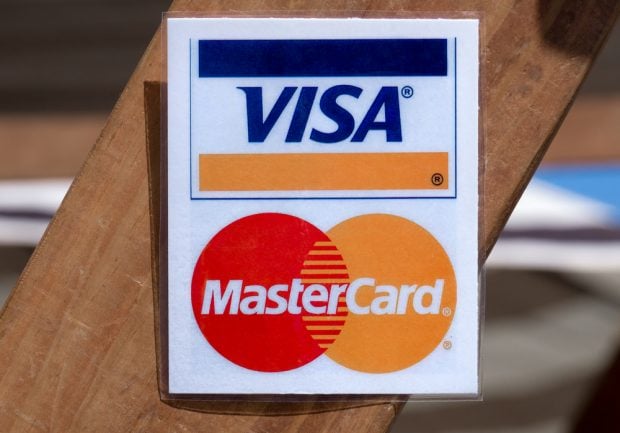A lawsuit filed by the Minnesota Attorney General Lori Swansonhas brought to light a significant difference between credit unioncard issuers and other, usually larger, bank card issuers.
|Swanson filed her lawsuit against the National ArbitrationForum, a for-profit firm widely used by large bank card issuers asan inexpensive tool to resolve disputes with cardholders. In thecomplaint, Swanson charged that, rather than being a neutralarbiter of disputes, the NAF had not disclosed that it hadfinancial links to debt collection companies.
|“The forum represents to the public, the courts and consumersthat it is independent, operates like an impartial court system,and is not affiliated with any party,” Swanson wrote in thecomplaint. “The consumer does not know the forum works alongsidecreditors behind the scenes-against the interests of consumers-toconvince creditors to place mandatory predispute arbitrationclauses in their customer agreements and to appoint the forum asthe arbitrator of any disputes that may arise in the future. Theforum does this so that creditors will file arbitration claimsagainst consumers in the forum, thereby generating revenue forit.”
|One of the ways credit union and bank card programs havediffered has been the way they handle disputes with cardholders.Both have used collection techniques to bring delinquentcardholders current, but in cases where accounts fall significantlybehind, they have used different approaches.
|Credit unions most often resort to gradual repayment plans or,when necessary, take delinquent members to court to collect thedebt while, almost universally, bank issuers have fallen back onbinding arbitration.
|Binding arbitration is where two parties in a dispute agree totake the matter through an arbitration proceeding before a neutralarbitrator to resolve their dispute. As part of the process, bothagree ahead of time to abide by the arbitrator's decision.
|Bank card issuers have favored this approach because it isgenerally less expensive than going to court and, critics havecharged, because they have hoodwinked consumers into agreeing toarbitration instead of choosing to go to court. Most bankcardholders agree to use binding arbitration when they sign theirapplication for a card, according to consumer groups critical ofthe approach, and most do not realize they have signed away theirright to appear in court in a disagreement with the cardissuer.
|The degree of consumer criticism of the practice reached such apitch that Congress is currently considering legislation banningcard issuers from using binding arbitration to resolve credit carddisputes.
|Enter Swanson's suit, which has both highlighted the issue andsubstantially changed the situation on the ground. As part of asettlement of the suit, the NAF agreed to stop taking cardarbitration cases entirely.
|Separately, another pillar of the arbitration industry hasannounced it would stop working in the field until it wassubstantially reformed.
|The American Arbitration Association, a nonprofit organizationthat bills itself as the “largest arbitration services provider,”announced soon after the NAF-Minnesota settlement that it too wasgetting out of the business until Congress passes legislationreforming the practice.
|“We have been studying this issue for some time,” said RichardNaimark, senior vice president for AAA. “We made our decision toimpose a moratorium on administering consumer debt arbitrationindependently and not at the behest of any outside entity as hasbeen claimed. We commend the Congress for its initiatives toprotect consumers in debt collection cases, and we will continue towork with it willingly and enthusiastically,” Naimark added.
|The departure of these two large arbitration organizations fromthe arbitration business has thrown the credit card world into somedisarray. Large card issuers have announced they have eitherdecided not to use arbitration any longer or are “considering theiroptions.” This gives credit unions a chance to point out theconsumer benefits of their cards, according to analysts.
|“The topic may be too specific for credit unions to use as astandalone marketing message,” said Karin Brown, vice president forcollections with Lending Solutions. “But it could be part of theargument credit unions use for why their cards are better for theirmembers. Absolutely.”
|Jeff Russell, CEO of TMG Financial Services, agreed, adding thatcredit unions considering selling their portfolios to banks need totake into account how those institutions resolve disputes.
|Russell explained that firms buying a card account have to sendthe cardholder a set of new disclosures covering how the issuerhandles disputes. But, he added, many cardholders may not realizethat the next time they use their card after receiving thosedisclosures signifies their consent to them.
|“It is definitely possible for a credit union cardholder to gofrom a situation where they didn't face arbitration when the creditunion issued the card to one where the new issuer might use it,”Russell said. “Credit unions considering selling their portfoliosshould be aware of it.”
|For the record, Russell said TMG's disclosures say that it canuse arbitration, but that it has never done so.
|Bank of America, parent company to noted CU card buyer FIA CardServices, has been quoted in
|the media that it is still considering its options in the wakeof the arbitration changes.
As of press time, Elan Financial Services, a subsidiary of US Bankthat is also a significant purchaser of CU card accounts, had notreturned calls for comment about whether or not it usesarbitration.
Complete your profile to continue reading and get FREE access to CUTimes.com, part of your ALM digital membership.
Your access to unlimited CUTimes.com content isn’t changing.
Once you are an ALM digital member, you’ll receive:
- Critical CUTimes.com information including comprehensive product and service provider listings via the Marketplace Directory, CU Careers, resources from industry leaders, webcasts, and breaking news, analysis and more with our informative Newsletters.
- Exclusive discounts on ALM and CU Times events.
- Access to other award-winning ALM websites including Law.com and GlobeSt.com.
Already have an account? Sign In
© 2024 ALM Global, LLC, All Rights Reserved. Request academic re-use from www.copyright.com. All other uses, submit a request to [email protected]. For more information visit Asset & Logo Licensing.









